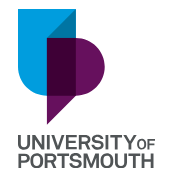About Physician Associate Studies Msc in University of Portsmouth
Physician associates are a new type of healthcare professional, who – while not doctors – work to the medical model. As a physician associate, you'll have the attitudes, skills and knowledge to deliver holistic care and treatment within the general medical and general practice team, under supervision.
This MSc Physician Associate Studies degree course is the perfect next step to take a relevant undergraduate degree further, and work towards becoming a physician associate. You'll get the skills and knowledge to become a confident medical professional, working and learning under the guidance of experienced staff and assisting patients in real healthcare settings.
While fairly new in the UK, the number of physician associates is increasing and the Government wants to have 1,000 physician associates working in general practice by 2020. When you finish the course, you'll be in a strong position to work in this important role.
Careers and opportunities
This programme will prepare you to complete the Physician Associate National Certifying Exam (PANCE) and take on the role of a physician associate in the healthcare environment.
What jobs can you do with a Physician Associate Studies degree?
As a physician associate, you can look forward to a career supporting doctors with diagnosing and managing patients, whether in a hospital setting or GP surgery.
In the future, other areas you could work in include leadership, service development, research, mentorship and practice education.
You'll be able to get advice and support from our Career and Employability Service for 5 years after you leave the University.
Work experience and career planning
To give you the best chance of securing a great job when you graduate, you'll get experience of working in real and simulated health settings. Our Careers and Employability service can also help you find relevant work experience that complements your studies.
Academic qualification equivalents
-
For entry to our Master's programmes, you will generally need to have a Bachelor's degree with at least 2nd Class Honours to be considered.
You may be admitted to Master's programmes with a lower level degree if you have work experience relevant to the degree applied for. Find out more about Recognised Prior Learning.
English language requirements (one of the below):
- IELTS: A minimum of IELTS band 6.5–7.0, with no component below 6.0.
- TOEFL iBT: For most of our Master's degrees, you need a score of 91 with a minimum of:20 in Reading 19 in Listening 21 in Speaking 20 in Writing.
- PTE: At least 61 points, with a minimum of 54 in each component
University of Portsmouth Highlights
| Type of Institution |
Public |
| Campus Setting |
Urban |
| Endowment |
9.9 Lakhs GBP |
| Number of Campuses |
2 - Langstone Campus and University Quarter |
| Percentage of International Students |
26% |
| Total number of Professors |
1,126 academic and Research staff |
| Student Satisfaction Rate |
Secured 88% Student Satisfaction |
| Graduate Job Rate |
97.5% |
| International fee |
£11,250 per annum |
| Type of Academic Programs |
UG, PG, Ph.D., research and Pathway Courses |
| Mode of Program |
Full time |
| Average Graduate Salary |
£13,900 - £15,900 a year |
University of Portsmouth Average Tuition Fees And Other Expenses
| Expenses |
Estimated cost in pounds |
| Undergraduate Fee |
£13,900 – £15,900 approx |
| Postgraduate Fee |
£13,900 – £15,900 approx |
| Accommodation |
£5000 approx |
| Cost of living |
£7000 - £10,000 approx |
| Placement year fee |
£2400 |
